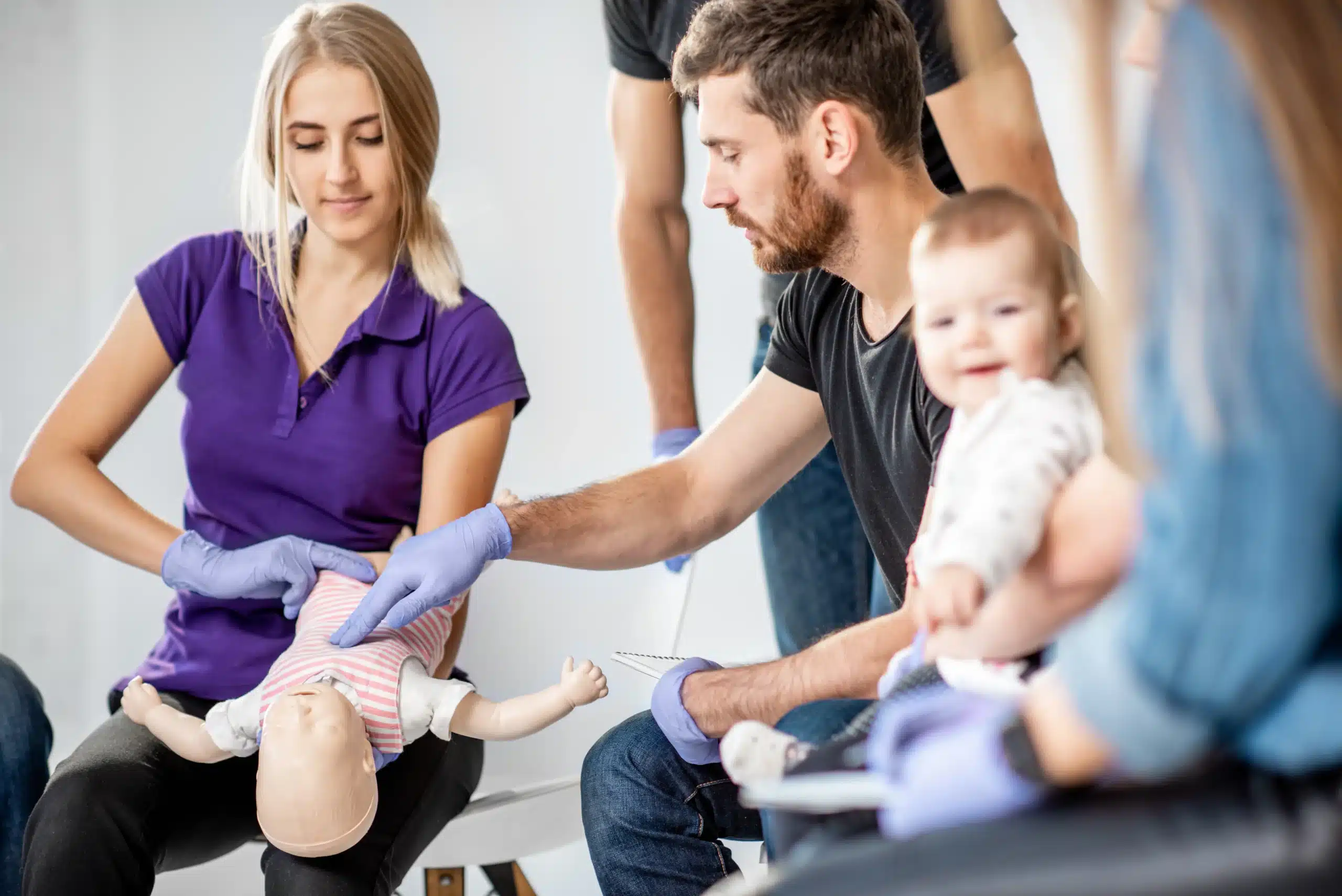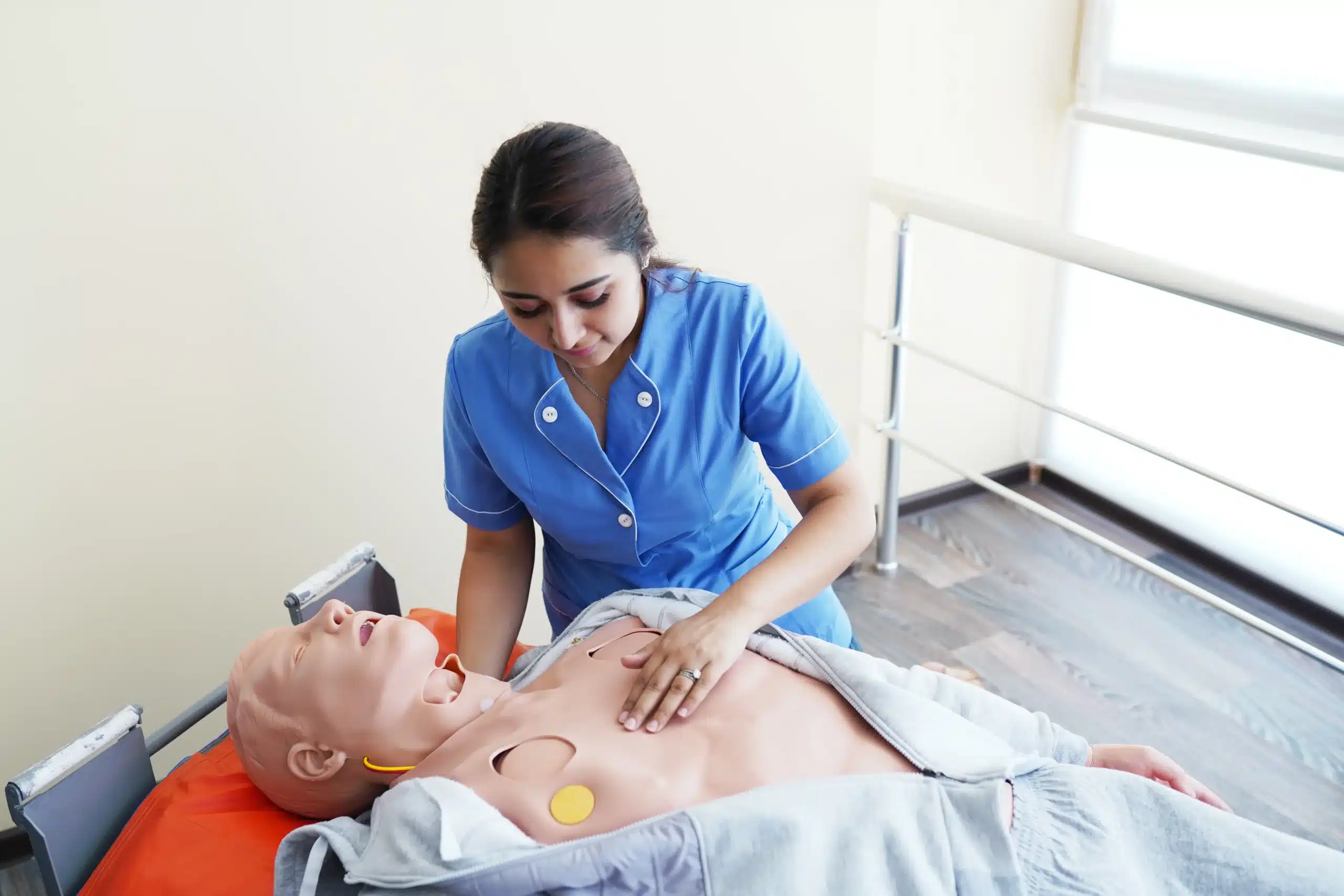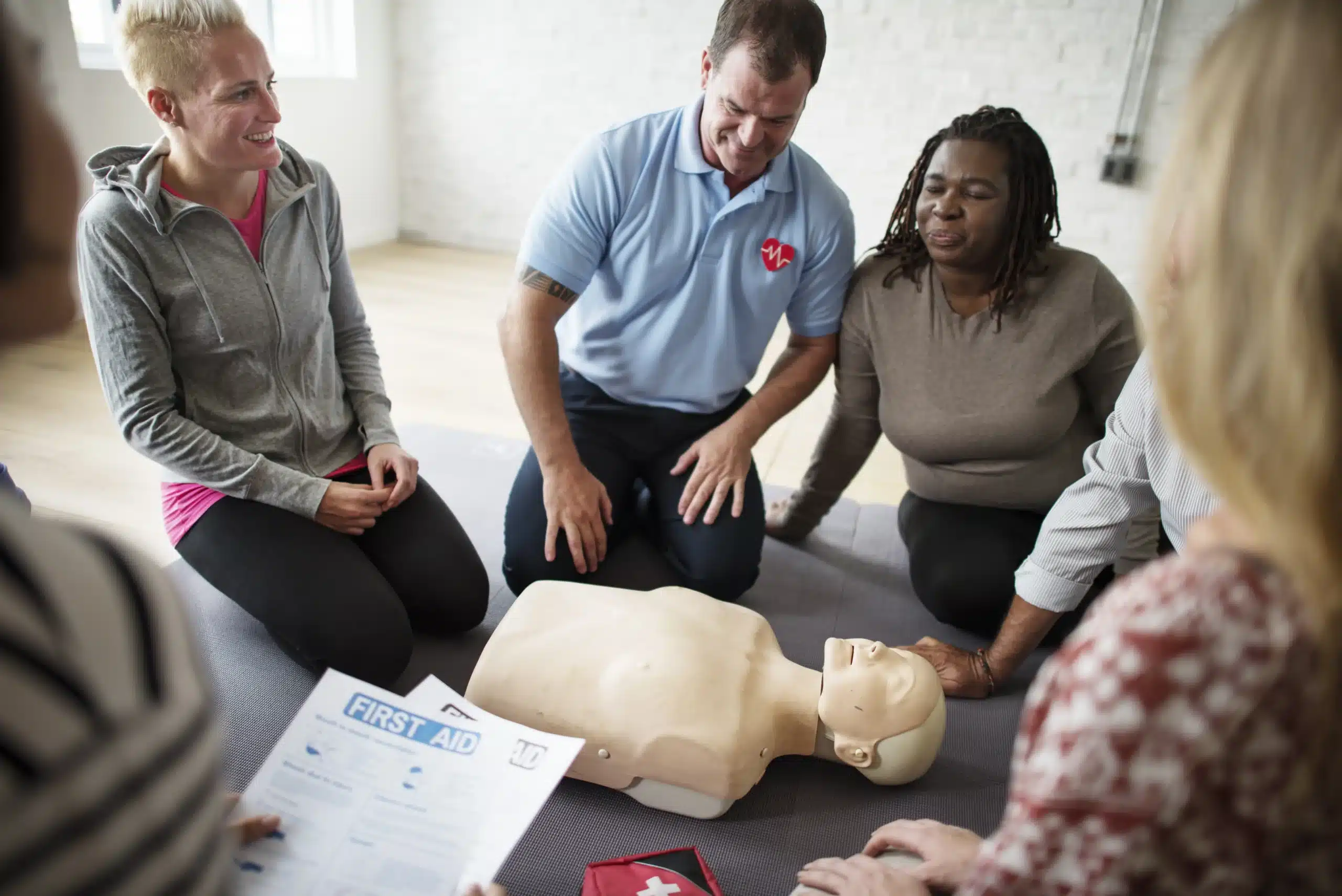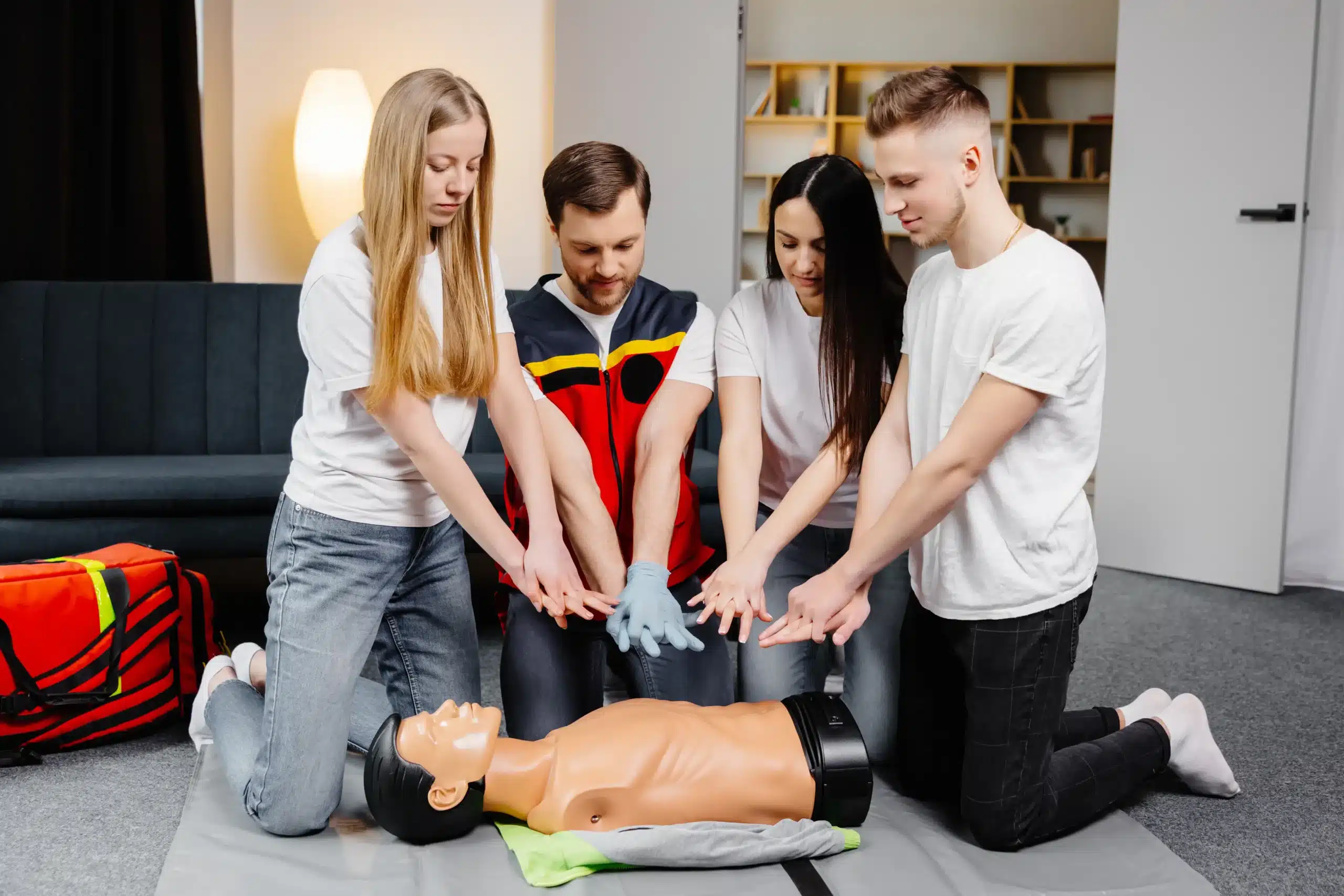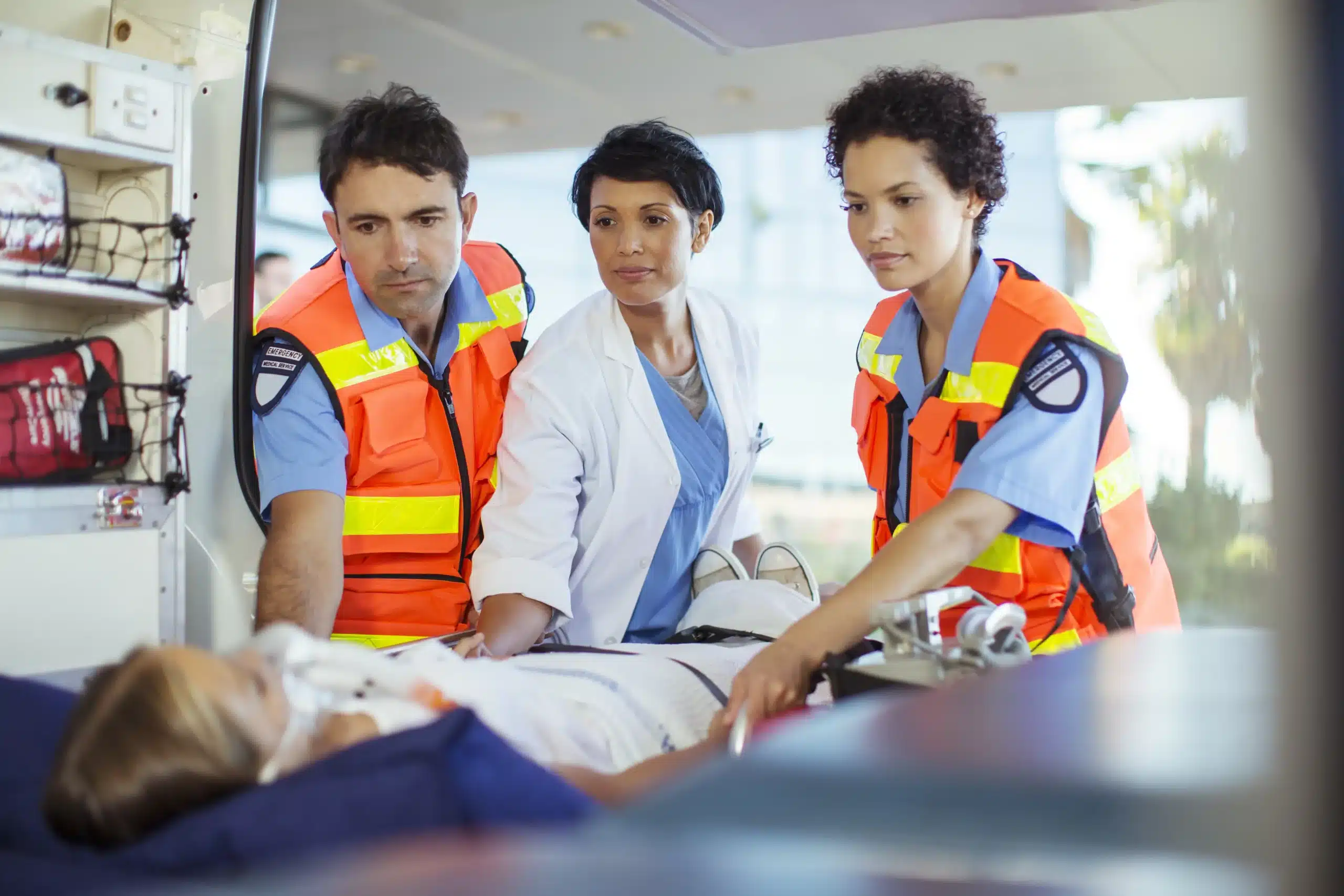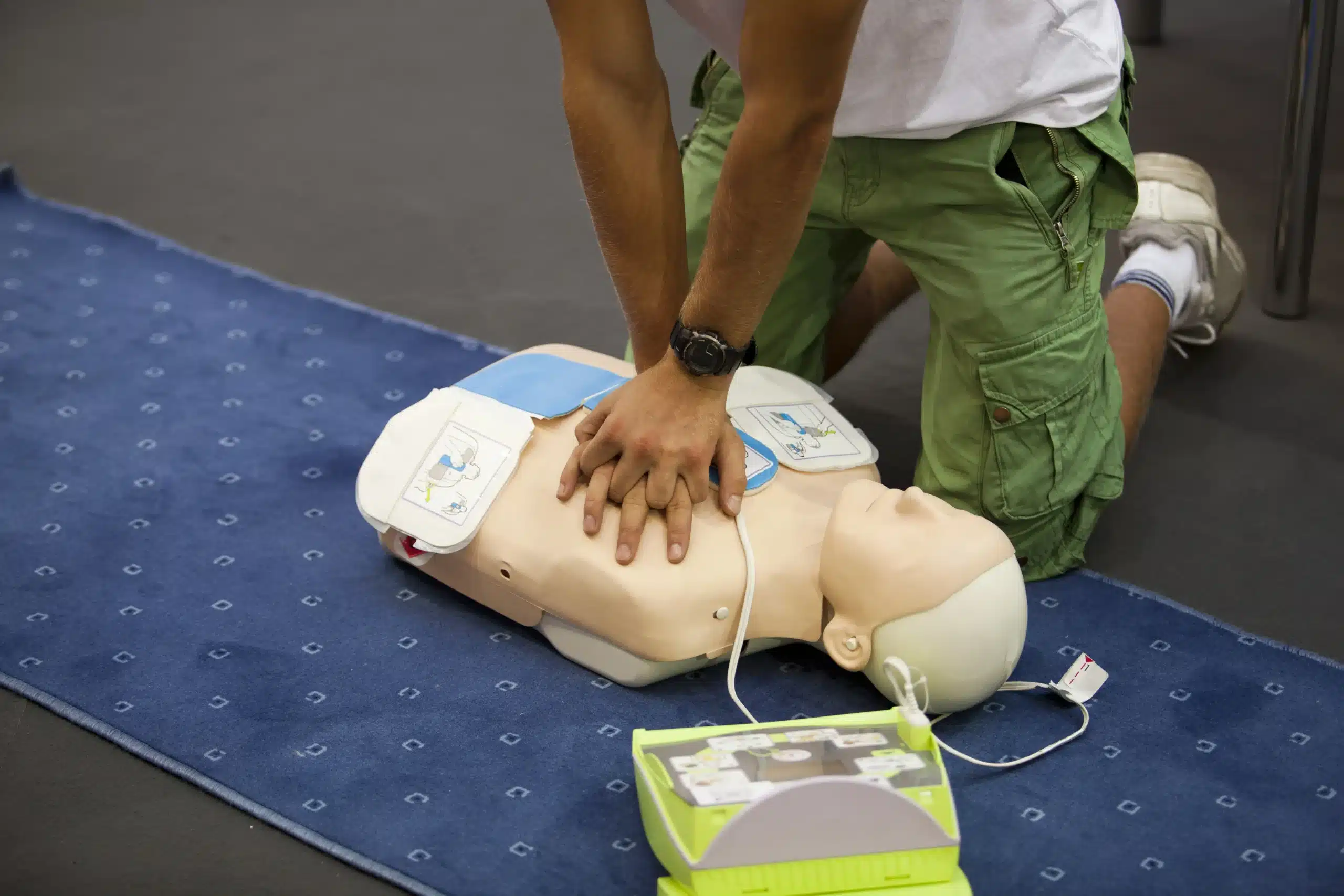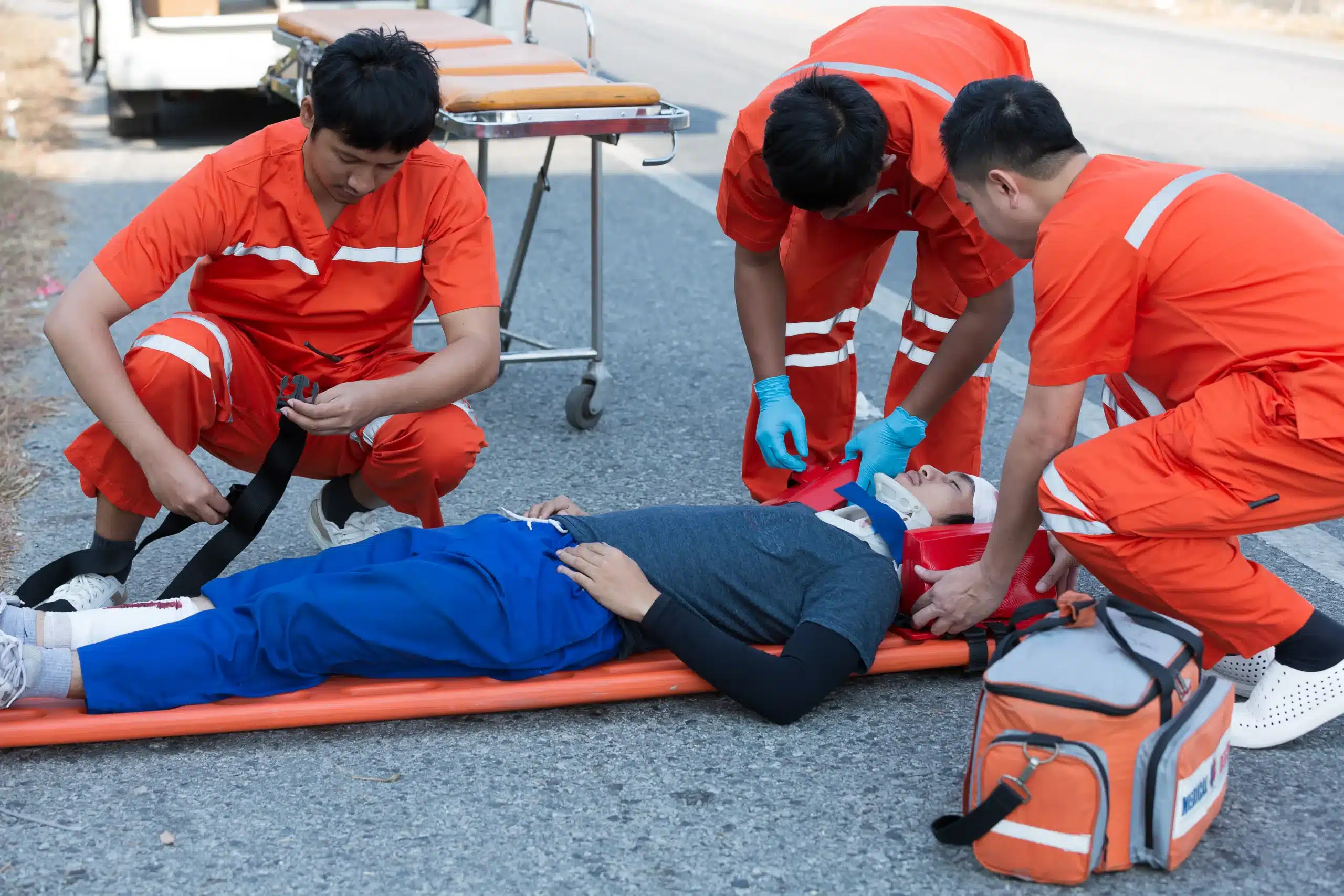CPR is a skill that can truly change lives—both the lives you save and your own. Finding the right CPR courses in Dublin is easier than you think. This guide provides a comprehensive overview of CPR training, from understanding the different certifications available to choosing the right course format and finding qualified instructors. We’ll also cover typical costs, available discounts, and what to expect during a CPR course. Finally, we’ll explore the many benefits of CPR training, not just for emergencies, but for your overall confidence and sense of preparedness.
Key Takeaways
- Find the right CPR class for your needs: Dublin CPR Classes offers a range of certifications, including BLS, ACLS, PALS, and First Aid, with options for healthcare providers and the general public. Consider your personal goals and professional requirements when choosing a course.
- CPR training empowers you to act confidently in emergencies: Learn essential life-saving skills, including chest compressions, rescue breaths, and AED use. A combination of theoretical learning and hands-on practice builds confidence and prepares you for real-world situations.
- Stay current with your CPR certification and continue learning: Most certifications are valid for two years. Regular renewal and ongoing training ensure your skills remain sharp and you stay up-to-date with the latest guidelines. Explore resources like the American Heart Association’s RQI program for convenient renewal options.
What is CPR? Dublin Courses Explained
CPR, or cardiopulmonary resuscitation, is a life-saving technique used when someone’s breathing or heartbeat has stopped. It combines chest compressions and rescue breaths to keep blood and oxygen flowing to the brain and other vital organs. Learning CPR empowers you to respond effectively in emergencies until professional medical help arrives.
Dublin offers a variety of CPR courses designed to meet different needs. Whether you’re a healthcare professional, a concerned parent, or simply want to be prepared, you can find a course that fits your schedule and learning style. Organizations like Safety Training Seminars offer comprehensive training and certifications in CPR, BLS (Basic Life Support), ACLS (Advanced Cardiovascular Life Support), PALS (Pediatric Advanced Life Support), and First Aid. Their flexible class schedules make it convenient for Dublin residents to get certified. Dublin CPR Classes also provides a range of courses, including the American Heart Association’s BLS for healthcare providers and Heartsaver courses for the general public. They offer a low price guarantee and discounts for group classes, making quality training accessible. For those seeking a streamlined renewal process, Dublin CPR Classes also utilizes the American Heart Association’s RQI program for quick and convenient online certification. No matter your background or experience level, Dublin has the resources to help you become CPR certified.
CPR Certifications: What’s Available?
Choosing the right CPR certification depends on your background and goals. Here’s a breakdown of common certifications offered by providers like Dublin CPR Classes:
Basic Life Support (BLS)
The BLS certification provides the foundational knowledge and skills to respond to life-threatening emergencies. It emphasizes high-quality CPR for adults, children, and infants, along with the proper use of an AED and effective team communication. This course is essential for healthcare providers and anyone working in a medical setting. It’s also a valuable asset for those who want to be prepared for emergencies.
Advanced Cardiovascular Life Support (ACLS)
ACLS certification goes beyond the basics, equipping healthcare professionals with the advanced skills to manage cardiovascular emergencies. Building upon the foundation of BLS, ACLS covers advanced interventions, pharmacology, and team dynamics in critical situations. This course is designed for those who direct or participate in resuscitation efforts.
Pediatric Advanced Life Support (PALS)
The PALS certification focuses on the specific needs of infants and children facing medical emergencies. It teaches healthcare providers how to assess and treat pediatric patients in critical situations, covering topics like respiratory distress, shock, and cardiac arrest. PALS providers play a crucial role in ensuring the best possible outcomes for young patients.
First Aid & CPR Combo Courses
For a well-rounded skill set, consider a First Aid & CPR combo course. These courses combine the life-saving techniques of CPR with essential first aid knowledge. You’ll learn how to manage injuries, handle common medical emergencies, and provide immediate care until professional help arrives. This comprehensive approach makes these courses a practical choice for anyone wanting to be prepared for a range of situations.
Find the Right CPR Course
So, you’re ready to learn CPR? Great! Finding the right course is the first step. Let’s break down how to choose the best fit for you.
Check Certification Requirements
Before you sign up for anything, think about why you want to learn CPR. Do you need it for your job? If so, an online-only course might not be enough. In-person CPR training provides a two-year certification that meets OSHA requirements, unlike online-only options. This distinction is important if you need certification for a healthcare position or other professional reasons. Dublin CPR Classes offers a variety of courses that meet these standards, so review our course options to find one that works.
Define Your Personal Goals
Beyond job requirements, what do you want to achieve? Are you a parent wanting to be prepared for emergencies at home? A healthcare provider looking to refresh your skills? Or maybe you’re interested in becoming a certified instructor. Different courses address different needs. For example, the American Heart Association Heartsaver courses work well for the general public, while healthcare providers often pursue BLS certification. Thinking through your goals will help you choose the right course.
Assess Your Experience
It’s okay if you’re a complete beginner—most people are! Many people have normal concerns about performing CPR correctly. Some worry about causing injury, while others hesitate about mouth-to-mouth resuscitation. A good CPR course will address these common concerns and build your confidence for emergencies. Our FAQ page answers common questions about CPR training.
Why Choose Recognized Certifications?
A recognized certification, like those from the American Heart Association or the Red Cross, matters. It demonstrates to employers, colleagues, and your community that you’ve completed quality training. The American Heart Association RQI program is a popular option for medical professionals seeking BLS, ACLS, and PALS certification. It’s a modern and efficient way to get and maintain your certification. Choosing a recognized program ensures your training meets industry standards and is widely accepted.
Course Formats: Your Options
Choosing the right CPR course format depends on your learning style, schedule, and specific needs. Let’s break down the most common options available in Dublin.
In-Person Training
For a truly immersive learning experience, in-person training offers a hands-on approach essential for mastering CPR techniques. You’ll learn alongside certified instructors and fellow students, providing opportunities for real-time feedback and practice. Dublin CPR Classes offers in-person training daily, from 8 am to 10 pm, seven days a week. This flexible schedule makes it easier to find a time that fits your busy life. Plus, these classes provide a 2-year certification that meets OSHA requirements, ensuring you’re well-prepared for real-life emergencies.
Online Certification
Online certification courses offer unparalleled flexibility and convenience, allowing you to learn at your own pace from anywhere with an internet connection. This format can be a great option for refreshing your skills or fitting training into a tight schedule. However, it’s important to be aware that online-only CPR certification does not always meet OSHA requirements, which may be necessary for some professions. The Red Cross offers more information on CPR certification options. Many people also find that the lack of hands-on practice can make them feel less confident applying their skills.
Blended Learning
If you appreciate the convenience of online learning but also recognize the value of hands-on training, blended learning might be the perfect fit. This approach combines online coursework with in-person skills sessions. You can work through the theoretical material at your own speed online, then attend a practical session to practice your skills with a certified instructor. The Red Cross offers blended learning CPR courses, providing a comprehensive and well-rounded learning experience. This format gives you the best of both worlds—online flexibility and in-person practice.
CPR Course Costs & Discounts
Finding the right CPR course involves several factors, and cost is often a key consideration. Understanding typical price ranges, available discounts, and guarantees can help you make an informed decision.
Typical Prices
CPR and AED courses generally run between two and four hours, depending on the specifics of the course content and the format. This impacts the overall cost, as does the training provider and the type of certification. For example, a basic CPR course may have a different price point than a combined CPR/First Aid class. For residents of Dublin, Livermore, and San Ramon, checking directly with Dublin CPR Classes for the latest pricing is a good first step.
Group Discounts & Promotions
If you’re training a group, such as colleagues or a community organization, look for providers offering group discounts. These can significantly reduce the per-person cost. Dublin CPR Classes offers discounts, making it more affordable to train multiple people at once. Many providers also run promotions, so checking their websites or contacting them directly about current deals is worthwhile.
Low Price Guarantees
Some CPR training providers offer a low-price guarantee, assuring you the best possible value. Dublin CPR Classes offers this for their courses in the Dublin, Livermore, and San Ramon areas. This commitment to affordability can be especially helpful for those on a budget. If a low price is a priority, ask potential providers about any guarantees.
What Happens in CPR Training?
CPR training equips you with the skills and knowledge to respond effectively during cardiac emergencies. It blends theoretical learning with practical exercises to ensure you’re prepared to act confidently. Let’s break down what you can expect.
Course Length & Time Commitment
CPR and AED training courses typically last between two and four hours, depending on the specific course content and format. This manageable timeframe makes it accessible for even the busiest schedules. Dublin CPR Classes offers a range of courses to fit your needs.
Theory Components
CPR training isn’t just about the physical actions. You’ll learn the theory behind CPR, including how it works and why it’s crucial in emergencies. Understanding the physiological aspects helps you grasp the importance of each step.
Hands-on Skills Practice
A core element of CPR training involves hands-on practice with CPR training mannequins. This allows you to develop the muscle memory and proper technique for chest compressions, ensuring effective CPR delivery. You’ll also learn how to use an automated external defibrillator (AED) safely and correctly. In-person CPR classes provide a two-year certification meeting OSHA requirements.
Debunking CPR Myths
Many misconceptions surround CPR. Training addresses these myths head-on, providing you with accurate information and building your confidence. For example, one common myth is that CPR restarts the heart. In reality, CPR helps circulate oxygenated blood to the brain and vital organs until advanced medical help arrives. Dispelling these CPR myths is crucial to encourage more people to perform CPR when needed.
Instructor Expertise & Qualifications
When your health is on the line, you want to know you’re learning from the best. Choosing a CPR course with qualified, experienced instructors is crucial for effective training. What should you look for?
Emergency Services Backgrounds
Instructors with backgrounds in emergency services, like firefighters and paramedics, bring invaluable real-world experience to the classroom. They’ve faced actual emergencies and can offer practical insights that go beyond the textbook. This firsthand knowledge can make a significant difference in your understanding of CPR techniques and their application under pressure. Dublin CPR Classes is known for its team of experienced professionals. They are dedicated to providing high-quality CPR education.
Ongoing Training & Certification
The medical field is constantly evolving, and CPR techniques are no exception. Look for courses where instructors maintain their certifications and participate in ongoing training. The American Heart Association RQI program is an excellent example of a modern, efficient system for healthcare professionals to stay current on the latest resuscitation guidelines. This commitment to continuous learning ensures you receive the most current and effective training, including hands-on practice with CPR training mannequins to perfect your technique.
CPR Benefits for Everyone
Learning CPR offers advantages beyond the ability to potentially save a life. It equips you with valuable skills and a sense of preparedness that can make a real difference in various aspects of your life. Whether you’re a parent, teacher, or simply someone who wants to be prepared, understanding the broader benefits of CPR can motivate you to take this important step. Check out our CPR courses in Dublin to get started.
Learn Life-Saving Skills
CPR certification provides you with the skills to respond effectively during medical emergencies. Knowing you can assist someone in a critical situation brings a sense of empowerment. Research shows this knowledge can reduce stress and anxiety, not just during emergencies, but in everyday life. This increased preparedness translates to a greater sense of calm and control.
Build Confidence in Emergencies
Imagine encountering a medical emergency. Would you feel confident you could help? CPR certification equips you with the knowledge and skills to respond effectively, increasing your confidence in such situations. This confidence allows you to react quickly and decisively when every second counts, empowering you to take charge and potentially make a life-saving difference.
Improve Workplace Safety
CPR training isn’t just for medical professionals; it’s a valuable asset in any workplace. The skills you gain can help you handle a range of situations, promoting a safer environment for everyone, as discussed in this MyCPR NOW article. From responding to medical emergencies to simply understanding first aid principles, CPR training enhances your overall preparedness. This can be particularly beneficial in workplaces with potential hazards.
Prepare Your Community
Learning CPR contributes to a safer community. When more people are trained, it creates a network of potential responders. This community preparedness, highlighted in research published by BMC Medical Education, can significantly improve overall community safety. By becoming CPR certified, you become a valuable link in this chain of potential lifesavers.
Keep Your CPR Certification Current
Renewal Process & How Often
Keeping your CPR skills sharp means staying current with your certification. CPR certifications, like those from the American Red Cross, are generally valid for two years. This means you’ll need to renew every two years to maintain your qualifications. Check with your certifying organization for their specific renewal process. Dublin CPR Classes offers convenient renewal courses to help you stay certified.
Continuing Education
Continuing education is valuable for anyone certified in CPR. Studies show that people who learn CPR often feel more confident and less anxious during emergencies—a benefit that carries over into everyday life. For more on the positive impact of CPR training on stress and anxiety, check out InPulse CPR’s blog. Developing your skills further through continued training can also broaden your skill set, better preparing you for a wider range of emergency situations. Explore additional training programs through providers like CPR Certification Now.
CPR Course Providers in Dublin
Finding the right CPR class can feel overwhelming, but several excellent providers serve the Dublin area. Here are a few options to consider:
Dublin CPR Classes
Dublin CPR Classes offers a range of American Heart Association courses, including BLS, ACLS, PALS, and First Aid. They’re known for their flexible scheduling and commitment to low prices. They also offer convenient RQI courses for healthcare professionals. Serving Dublin, Livermore, and San Ramon, they can often arrange group discounts and classes at your preferred location. For more information on their BLS certification, visit their BLS course page.
American Heart Association
While not a direct course provider, the American Heart Association sets the standards for CPR training. You can find a list of certified training centers on their website, ensuring you receive high-quality instruction. Many local providers, including Dublin CPR Classes, offer AHA-certified courses.
Irish Heart Foundation
The Irish Heart Foundation offers a variety of first aid courses throughout Ireland, including Dublin. Their focus on essential life-saving skills makes them a valuable resource for anyone looking to learn basic first aid and CPR. Visit their website for more information.
Safety Training Seminars
Safety Training Seminars provides CPR and first aid training in Dublin, CA, focusing on American Heart Association certifications like CPR, BLS, ACLS, and PALS. They aim for engaging and informative instruction, giving participants the confidence to handle emergencies. Learn more on their website.
Irish Red Cross
The Irish Red Cross is another reputable organization offering first aid training in Dublin. Their courses can be delivered at your workplace or another convenient location, tailored to various groups, from businesses to community organizations. Explore their first aid course options on their website.
Related Articles
- American Heart Association Courses – Dublin CPR Classes
- CPR Classes in Dublin: Your Complete Guide – Dublin CPR Classes
- CPR, BLS, ACLS, PALS, and First-aid Courses in Dublin, CA
- Why CPR is Crucial in Healthcare
- CPR Courses in San Ramon: Find the Right Class for You – Dublin CPR Classes
Frequently Asked Questions
Which CPR certification is right for me?
It depends on your specific needs. If you’re a healthcare provider, BLS or a more advanced certification like ACLS or PALS is likely required. For general knowledge and preparedness, a Heartsaver CPR/AED or First Aid/CPR/AED course is a great option. Think about your goals for the training and choose accordingly. Dublin CPR Classes can help you determine the best fit.
What if I’m nervous about performing CPR in a real emergency?
It’s completely normal to feel apprehensive. High-quality CPR training addresses these concerns directly. You’ll practice on mannequins in a safe environment, building your confidence and muscle memory. Instructors will also debunk common CPR myths and help you understand the process thoroughly.
Are online CPR certifications accepted everywhere?
While online courses offer convenience, they don’t always meet regulatory requirements. Some professions require in-person training and certification. Check with your employer or licensing board to confirm if online-only certification is sufficient. Dublin CPR Classes offers both in-person and blended learning options.
How much does a CPR course cost?
Prices vary depending on the course type, format (in-person, blended, or online), and provider. Group discounts are often available. Check with Dublin CPR Classes for their current pricing and any applicable discounts. They also offer a low-price guarantee for their courses.
How can I keep my CPR certification up-to-date?
CPR certifications typically expire after two years. Renewal courses are readily available. Contact your original certifying organization or Dublin CPR Classes for information on renewing your certification. Staying current ensures you have the most up-to-date knowledge and skills.


